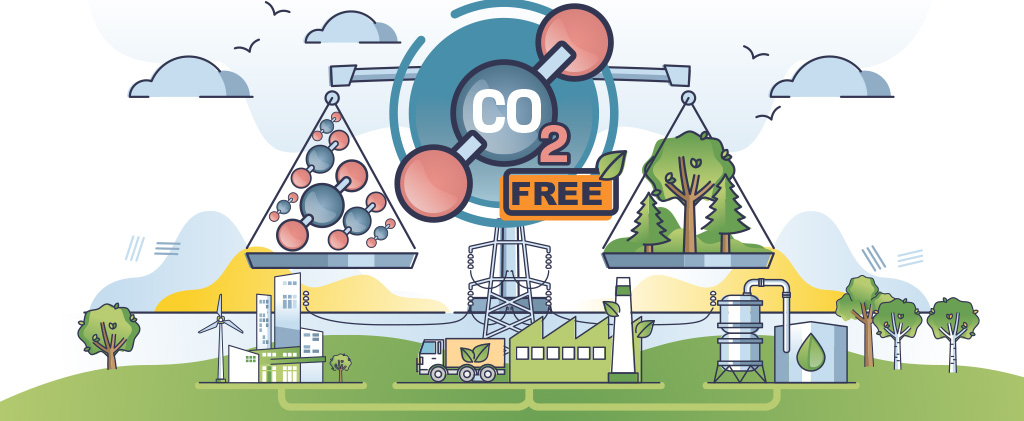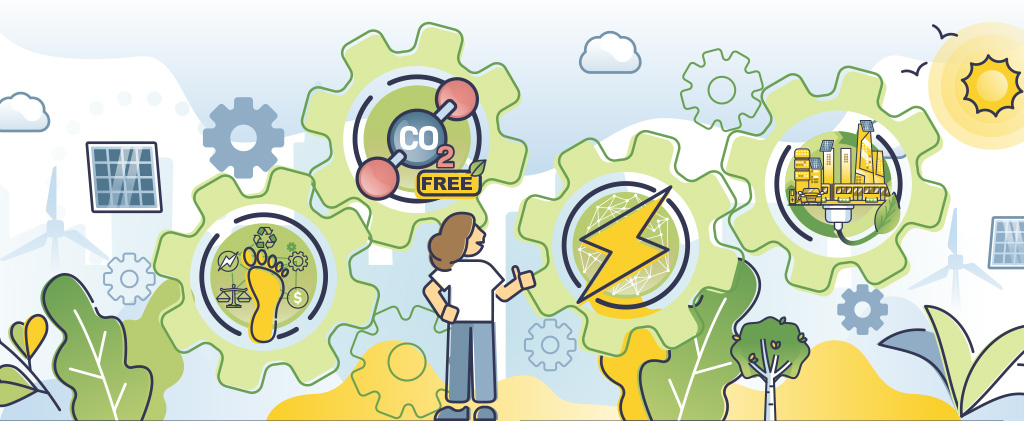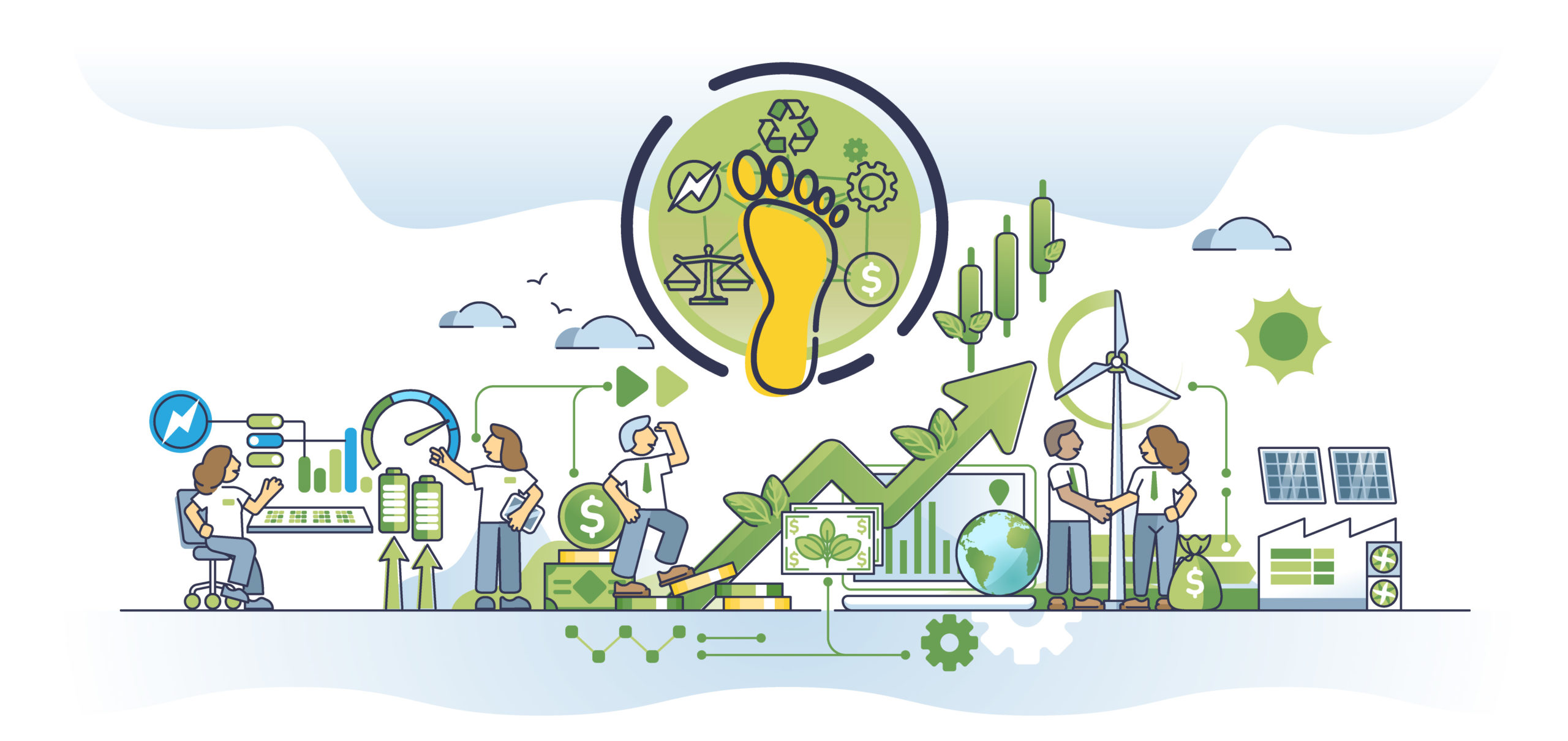

Eager to learn more about the program? We invite you to join us for a series of webinars exploring Industry Challenges and potential CO2 Emission Solutions. Register for the webinar here
Target audience
Industry and energy professionals seeking to acquire the skills and tools to build sustainable energy systems and accelerate the energy transition.
A good technical background in engineering and/or mathematics is essential as advanced data analysis and modelling techniques are widely used in the programme.
Introduction
Reducing CO2 emissions and optimising energy systems without compromising competitiveness is a major challenge for many industries. Given the long and heavy investment cycles involved, there is an urgent need for industrial companies to start transforming their operations by applying sustainable engineering practices today.
Energy efficiency, renewable energy integration, carbon capture and storage, hydrogen use, advanced conversion technologies, water-waste-energy nexus models, urban energy system optimisation are just a few of the options available. However, a holistic approach is essential to achieve symbiosis between production sites and the circular economy. How can your company develop a systemic approach to energy efficiency and decarbonisation of industrial processes?
Upskill to lead the industrial energy transition now. Completing the Certificate of Advanced Studies (CAS) in Industry Decarbonisation is a real opportunity to advance your career, as there is a significant need for highly skilled professionals who can holistically implement sustainable energy systems and decarbonise industrial processes.
For those aiming to pursue advanced specialisation, the CAS is also a first step into the following two advanced programs:
Objectives
- Be able to conduct energy audits that analyze and measure the energetics of a production process, considering thermodynamical, economical and environmental impacts
- Identify options for decarbonisation and process efficiency improvement as, technological changes, CO2 capture & sequestration, heat recovery & valorisation, optimisation of energy supply, renewable energy integration, waste-water-energy management
- Acquire tools and methods for implementing decarbonisation solutions in industrial processes
- Adopt a holistic approach integrating the company’s industrial process with the main energy infrastructure and the surrounding industrial and urban system
Cursus & Certification
The Certificate of Advanced Studies (CAS) in Sustainable Energy Systems Engineering: Industry Decarbonisation combines face-to-face and synchronous online teaching and consists of:
- Asynchronous online teaching (~80h)
- Flipped classroom instruction (~27h)
- Practical group project workshops (~60)
- Practical group project (~120h) with a group report production
- Individual oral assessment
This Certificate of Advanced Studies is one of the CASs recognized in the Master of Advanced Studies (MAS) in Sustainable Energy Systems Engineering. More information here.
Title obtained: Certificate of Advanced Studies (CAS) in Sustainable Energy Systems Engineering: Industry Decarbonisation delivered by EPFL, 10 ECTS credits. Consult the Academic Regulations
Program
WELCOME DAY
Fri. February 17, 2025, Energypolis
- Teaching staff and peers introduction
- Programme and teaching approach presentation
- Online platform starter kit
——————————————–
ASYNCHRONOUS ONLINE TEACHING (to be prepared before the on-site lectures and activities)
Self-paced from February to June 2025, supplemented by coaching sessions with academic advisors
- Objectives: Upgrade knowledge and acquire a solid theoretical foundation, necessary to develop a systemic thinking and approach to energy efficiency and decarbonisation of industrial processes
- Topics: Energy audits / Process integration / Industry decarbonisation / Fuel cells / Power to X systems / Compressors and heat pumps / Turbines and thermal cycles in industry / Industrial heat / Biomass conversion / Bio-refineries / CO2 capture adsorption systems / Membrane based gas separation systems
——————————————–
ON-SITE LECTURES AND ACTIVITIES
Week 1
ENERGY AUDITS
Mon. March 17 to March 21, 2025, Energypolis
- Flipped class: application of online learning (discussions, case studies, hands-on exercises, etc.)
- Practical group project workshop: Energy audit methodology / Process definition & efficiency improvement / Sustainability metrics (KPIs) / Process & energy system integration
Week 2
HEAT RECOVERY & ENERGY CONVERSION
Mon. April 28 to Fri. May 2, 2025, Energypolis
- Flipped class: application of online learning
- Practical group project workshop: Energy requirments of a process / Heat recovery (pinch analysis) & optimisation / Heat exchanger network / Industrial heat, combined heat & power technologies / Water minimisation & recovery
Week 3
INDUSTRIAL SYMBIOSIS & CO2 CAPTURE
Mon. June 2 to Fri. June 6, 2025 Energypolis
- Flipped class: application of online learning
- Practical group project workshop: Renewable energy integration / Fuel cells & electrolysis / Biomass conversion / Waste minimisation & valorisation / CO2 capture, use, sequestration & mineralisation / Industrial symbiosis / Energy infrastructure interaction & integration
——————————————–
PRACTICAL GROUP PROJECT AND EVALUATION
- Objectives: Collaborative work (group of 3) addressing a real-world energy challenge to gain practical experience in sustainable energy system modeling, research and proposal development
- Project overview: Research & documentation / Expert opinions / On-Site investigation / Solution proposal / Calculation and optimization / Holistic view
- Evaluation: Production of a group report and individual oral assessment
Organisation
- Industrial Process and Energy Systems Engineering (IPESE), School of Engineering (STI), EPFL, Switzerland
- Institute of Sustainable Energy, HES-SO Valais-Wallis, Switzerland
- Energy Center (CEN), EPFL, Switzerland
Programme Academic Directors
- Prof François Maréchal, Head of Industrial Process and Energy Systems Engineering group, EPFL
- Prof. Manuele Margni, Institute of Sustainable Energy, HES-SO Valais-Wallis
Steering Committee
- Prof. François Maréchal, Head of Industrial Process and Energy Systems Engineering group, EPFL
- Prof. Manuele Margni, Institute of Sustainable Energy, HES-SO Valais-Wallis
- Prof. Gaëtan Cherix, Director of the School of Engineering (HEI), HES-SO Valais-Wallis
- Prof. Sophia Haussener, Head of the Laboratory of Renewable Energy Science and Engineering, EPFL
- Dr. Yasmine Calisesi, Executive Director of the EPFL Energy Center
- Rigas Hadzilacos, Deputy Executive Director of Formation Continue UNIL-EPFL
CAS Academic Leadership
- Prof. François Maréchal, EPFL
- Prof. Jessen Page, HES-SO
Contact
For academic questions :
Dr. Jean-Marie Fürbringer, Program Executive Director of MAS, DAS and CAS Sustainable Energy Systems Engineering
sustainable.energy@epfl.ch
Practical Information
Course venue
- Online
- Onsite: Energypolis, Sion, Switzerland
Course fee
10’000.– Swiss francs* **
* Payment in instalments possible
** Based on the price of the last edition.
Enrol
Admission requirements
EPF or HES Master’s degree, or another degree (in a field related to the program) deemed equivalent by the Steering Committee*
* Exceptionally, candidates who do not meet the above requirements may be considered for admission, provided they can demonstrate a sufficient level of qualification with another engineering degree in a relevant domain and at least 5 years’ professional experience in the field.
Registration
Admission on file to submit to Formation Continue UNIL-EPFL. Please join to the registration form:
- Letter of motivation
- CV
- Copies of diplomas obtained
Registration deadline
This course is full. Registrations are closed.
Be alerted as soon as registration opens for the next edition of this course, register on our Stay Informed platform.
In the media
- Energies go Green, article (in English and French) published in the EPFL magazine “Dimension” on March 14, 2024



